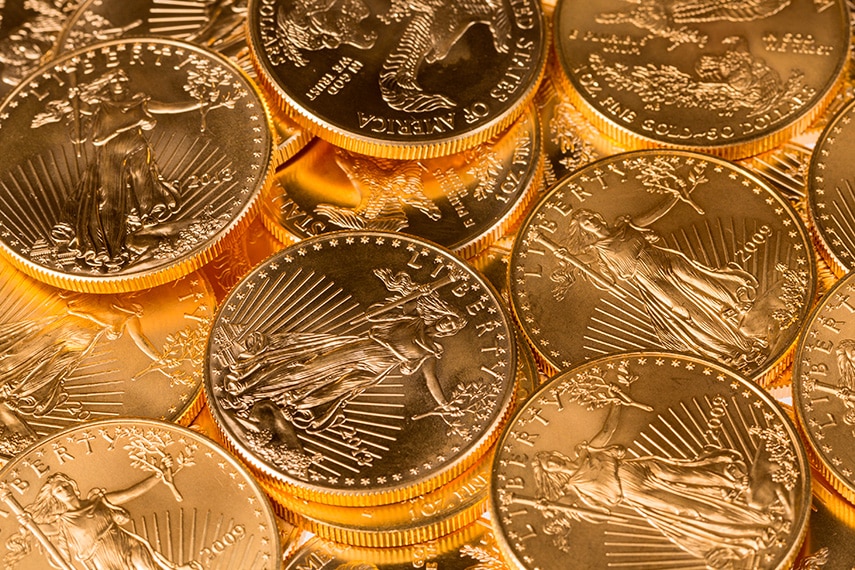Is Buying Gold A Good Investment?
If you’re anything like me, you’ve probably heard a ton about investing in gold. It’s one of those things that seems to have been around forever, and yet, it’s still a hot topic in investment circles. So, I thought, why not take a deep dive into what makes gold such a timeless asset? Let’s explore the good, the bad, and even a bit of history to spice things up. Side note… be sure to read my caveat (disclaimer) in my conclusion at the bottom of this article.

A Little Bit Of History
The Dawn of Gold Use
Gold’s allure can be traced back to ancient civilizations, where it was revered for its lustrous beauty and rarity. The Egyptians, as early as 3,000 BC, were among the first to extensively mine and refine gold, using it to craft jewelry and religious artifacts, and even to decorate tombs of the Pharaohs, signifying gold’s association with divinity and immortality. Gold’s incorruptibility and its ability to resist tarnish made it synonymous with gods and eternal life.
Gold as Currency
The use of gold as currency began in 700 BC when the Lydians, an ancient kingdom in modern-day Turkey, created gold coins. This innovation transformed gold into a standardized medium of exchange, facilitating trade across different cultures and regions. The concept of gold coins spread rapidly to Greece, Rome, and beyond, establishing gold as the backbone of global economies.
The Gold Standard
Fast forward to more recent history, the gold standard became a pivotal economic system in which countries pegged their currencies to a specific amount of gold. This system was first adopted by Great Britain in the 19th century and later by other major powers, including the United States. The gold standard aimed to stabilize currencies and control inflation by linking them to gold’s intrinsic value. However, the system had its limitations, especially evident during major economic crises when the demand for gold exceeded the supply, leading to deflation and economic stagnation.
The End of the Gold Standard
The Great Depression of the 1930s tested the gold standard to its limits, prompting many countries to abandon it in order to print more money and stimulate their economies. The final blow to the gold standard came in 1971 when U.S. President Richard Nixon officially ended the convertibility of the dollar into gold, leading to the system of fiat money that we know today. This shift marked the end of gold’s direct role in the global monetary system but not its value or appeal.
Modern Gold Market
Today, gold continues to hold significant value in the global market, not just as a hedge against inflation and a safe haven asset, but also in various industries including electronics, due to its conductive properties, and medicine, due to its biocompatibility. The World Gold Council, established in 1987, plays a crucial role in maintaining gold’s market significance by developing markets for gold investment, jewelry, and technology.
Gold’s Cultural Significance
Beyond its economic and practical uses, gold maintains a profound cultural and symbolic significance across different societies. It symbolizes purity, wealth, and power, featuring prominently in religious ceremonies, weddings, and cultural traditions around the world.
Why Gold Rocks
Inflation Hedge
One of the coolest things about gold is its ability to stand strong when inflation hits. While the value of money might be doing a nosedive, gold tends to hold its ground or even climb higher. It’s like that reliable friend who’s always there, no matter what.
Portfolio Diversification
I’m all for not putting all my eggs in one basket. Gold is like the wildcard in your investment deck. It usually dances to its own beat, not following the stock market or bonds too closely. This means when the stock market is having a meltdown, gold might just be your knight in shining armor.
Safe Haven
The world’s a crazy place, and during times of uncertainty, be it political unrest or economic downturns, gold has this uncanny ability to be the go-to asset for safety. It’s like a financial comfort blanket, offering a sense of security when everything else is up in the air.
Store of Value
Here’s the kicker: gold has been valuable for thousands of years. Unlike paper money that governments can print on a whim, gold’s supply is limited. This scarcity, combined with its historical pedigree, makes it a solid store of value.


But It’s Not All
Sunshine and Rainbows
Volatility
Yep, gold can be a wild ride. Its price can swing dramatically, and sometimes, that’s enough to give you a heart attack. Factors like global demand, mining supply, and investor behavior can all throw its price for a loop.
Cost and Storage
Owning physical gold isn’t like owning stocks. There are costs to consider, like storage and insurance. And let’s not forget about the markups from dealers. It’s not just about buying gold; it’s about keeping it safe too.
Liquidity Concerns
While selling gold isn’t rocket science, it’s not as liquid as selling stocks or bonds. If you own physical gold, it might take a bit more effort to find a buyer willing to pay the price you want.
Opportunity Cost
Investing in gold means you’re missing out on dividends or interest you could earn from other investments. It’s a silent cost, but over time, it can add up.
How Do You Actually
Invest in Gold?
There are a few ways to get into the gold game. You could go old school and buy physical gold, like coins or bars. Or, you could opt for gold ETFs, which are like stocks that track the price of gold. Gold mining stocks are another avenue, offering a more indirect approach to gold investing. And let’s not forget about gold futures, for those who like a bit of spice in their investment life.
My personal preference? I like the “old school” way. I love the touch of gold bars and gold coins. In addition, I believe in the old adage, “A bird in the hand is worth two in the bush.”


Why 7K Metals Stands Out for Gold Enthusiasts
7K Metals is a company that operates in the precious metals industry, specifically focusing on gold and silver. It differentiates itself by offering a membership-based platform where individuals can purchase gold and silver coins and bars at wholesale prices. The company’s mission is centered around providing financial education and empowering its members to build wealth through the accumulation of precious metals, leveraging the historical stability and value preservation characteristics of these assets.
Access to Precious Metals at
Competitive Prices
One of the key appeals of 7K Metals for anyone interested in gold is its business model, which aims to offer members access to gold and other precious metals at prices that are competitive, potentially lower than retail. This is particularly attractive for investors looking to maximize their purchasing power.
Financial Education and Resources
7K Metals places a strong emphasis on financial education, offering resources and tools designed to inform members about the benefits of investing in gold and silver. This educational component is crucial for anyone looking to understand the nuances of precious metal investing and wealth preservation.
Wealth Building Through Precious Metals
The company promotes the idea of building wealth and securing financial stability through the acquisition of gold and silver. For those who believe in the intrinsic value and economic stability offered by precious metals, 7K Metals provides a platform to act on that belief.
Focus on Legal and Ethical Standards
7K Metals asserts a commitment to operating within legal and ethical standards, which is essential for trust and reliability in the precious metals market. This commitment is critical for investors who seek assurance regarding the legitimacy and ethical sourcing of their investments.
Investing in gold presents a blend of timeless value, historical significance, and financial stability amidst market volatility. As we’ve explored, gold’s allure is not just rooted in its past but in its present role as a hedge against inflation, a diversifier for investment portfolios, and a safe haven during turbulent times. However, like any investment, it comes with its own set of challenges such as volatility, costs, liquidity concerns, and the opportunity cost of foregone dividends or interest.
As you reflect on the insights shared, consider the role gold could play in your financial strategy. Whether you’re drawn to physical gold or prefer the liquidity of gold ETFs, the decision to invest should align with your financial goals, risk tolerance, and investment horizon.
If you’re intrigued by the prospects of gold investment and wish to delve deeper into how it can fit into your financial landscape, I encourage you to reach out. Text me at (240) 226-6757 with the keyword “gold,” and I’ll share valuable resources and insights to help you navigate your investment journey. Let’s explore together how gold can fortify your investment portfolio and secure your financial future.
For your cell phone, only use your 10-digit cell phone number.
No commas, hyphens, or parenthesis.



